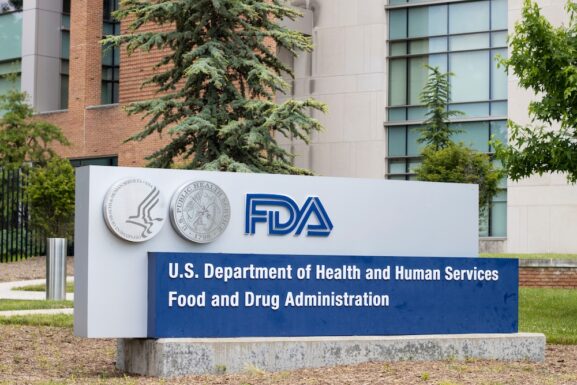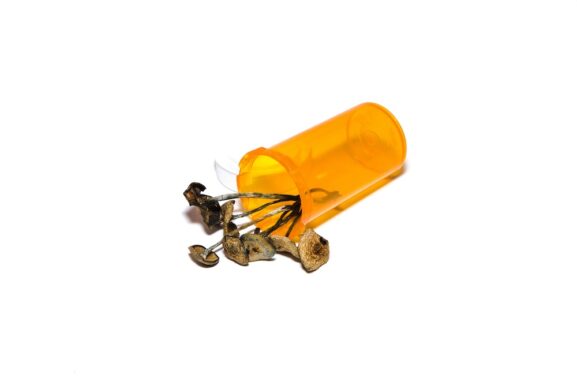Why Self-Medicating With Psychedelics Can Be Risky
When it comes to self-medicating with any substance, there is risk involved. From side effects to potentially harmful reactions, having a certified medical professional to administer medication is always the best option.
Recent research into psychedelics indicates that these substances can effectively treat a range of health conditions. Some include depression, end-of-life anxiety in patients with a terminal illness, nicotine addiction, ketamine therapy for post-traumatic stress disorder (PTSD).
These are all conditions that can significantly disrupt someone’s ability to function and their overall quality of life. It is promising that psychedelic compounds such as LSD, psilocybin, and ibogaine can often lead to rapid and long-lasting relief.
If living with any of these conditions, clinical study results may bring hope that a psychedelic experience could provide relief. Also, when having a treatment-resistant condition, such as treatment-resistant depression or PTSD — which psilocybin, ketamine, and MDMA therapy can treat — respectively, some may be more motivated to seek out psychedelics.
If psychedelics aren’t available as a legal medicine where you live, and you’re not part of a clinical trial involving psychedelics, you might think self-medicating with psychedelics is the only option you have left. There are many anecdotal reports from people who have treated a condition themselves by taking psychedelics. But self-medicating with psychedelics is not without its risks. There are reports from people who have suffered negative consequences through self-medication.
Psychedelics are powerful mind-altering substance. Taking them on your own terms is very different than taking them under the supervision of trained professionals.
To highlight the risks, see below for some key reasons why self-medicating with psychedelics shouldn’t be considered.
RELATED: The 10 Best Psychedelic Documentaries
A Lack Of Support During The Experience
A psychedelic experience can bring up a lot of difficult emotions. This is especially true when you are processing past trauma during the experience. Sometimes, negative emotions — such as anxiety, fear, panic, and dread — can become quite intense. Likewise, perceptual changes, hallucinations, and a loss of your sense of self or time can also be scary.
When an experience becomes overwhelming in a negative sense, it is known as a “bad trip”. The whole experience might not be negative but a large chunk of it could be. Either way, this kind of experience may not just be frightening at the time; for many individuals, it can lead to long-term side effects, including anxiety, depression, and dissociation.
It is true that many individuals have been successful in dealing with challenging psychedelic experiences. For others, it can be hard to stay calm and grounded without support from someone else.
While taking a psychedelic in the presence of a sober “trip sitter” may be helpful, such a person is usually a tripper’s close friend or partner. The sitter may be experienced with psychedelics themselves. However, a trip sitter isn’t the same as taking psychedelics under the guidance of a mental health professional. A trained guide or therapist will be able to offer the kind of emotional support one needs if the experience becomes challenging. They will help navigate periods of difficulty, helping to improve the overall quality and outcome of the experience.
A Lack Of Support After The Experience
One of the most vital factors in sustaining the benefits of a psychedelic experience is integration. This refers to the process of making sense of your psychedelic experience, trying to apply the lessons and insights you gained from it to your everyday life.
Whether an experience felt overwhelmingly positive or negative, integration can often make all the difference. You may have had a “bad trip”, but these difficult experiences can be highly valuable in the long-term. As long as you’re able to make sense of the material and emotions you experienced during the session, of course.
Some individuals may be able to integrate a psychedelic experience on their own, through individual practices such as introspection, meditation, reading, and writing. Others, in need of support with their integration, may seek insight from people on online forums. Joining a psychedelic integration group (where people discuss their psychedelic experiences in person) is also an option.
While these may seem helpful, they’re often an inadequate replacement for talking to a therapist who was present during an experience. Additionally, this person can apply expertise and care in helping you process the material uncovered. Psychedelic therapy, in the way researchers have been exploring in clinical trials, involves several therapy sessions after the experience. These follow-up sessions can ensure that you get the most out of the experience. They will also allow you to process any difficult experiences that might otherwise leave you feeling confused and unsettled.
RELATED: What Are Psychedelics? We Explain The Differences From Other Drugs
Self-Medicating With Psychedelics And The Law
If you’re self-medicating with an illicit psychedelic, then you at putting yourself at risk of criminal prosecution. In many countries, psychedelics such as psilocybin, LSD, and DMT are schedule I substances. That means they carry the highest penalties for possession. Having a criminal record of drug possession could also impact your job prospects.
Another issue with taking an illicit psychedelic is that this might mean you want to self-medicate in secrecy. Both the illegal status and stigma surrounding these substances may affect the quality of your experience.
When taking a psychedelic as a licensed therapy, however, the experience is in a sanctioned environment, free from stigma. In this way, you can explore your experience with fewer worries.
Self-Medicating Psychedelics Outside Of A Regulated System
If you plan to purchase and take an illicit psychedelic, this means you are taking an unregulated substance. This means you might not know the dosage or potency of the product. This could result in an underwhelming experience (if the substance is less than the dose advertised). On the flip side, it could result in an overwhelming experience (if the substance is more than the advertised dose).
Worse yet, if you unintentionally take too much of the compound, you could put yourself at physical risk. A dose too high may leave out of control feelings. It may lead you feeling unaware of your surroundings. This is especially risky when home alone or walking near roads. Having someone around who can ensure your physical safety is critical.
Many psychedelics are unregulated in most countries, meaning you might be sold a drug other than the one you want. For example, some dealers are known to sell NBOMe compounds as LSD. These compounds, such as 25i-NBOMe, carry greater physical risks than LSD, and have been implicated in a number of deaths. These fatalities have involved poisoning from the substance itself as well as unpredictable, violent behavior that led to death.
Taking a psychedelic as a legal and regulated medicine brings relief that you’ll receive the right drug and the dosage. You can also be sure that you won’t be taking a compound that is contaminated with any other harmful substances. While testing substances with a reagent testing kit is wise, several kits are usually necessary to ensure an accurate result. In addition, you won’t be able to test the dosage or purity of a substance using these kits. Some people would prefer to know exactly what they’re taking.
RELATED: What Does ‘Set And Setting’ Mean When Using Psychedelics?
The Importance Of Set And Setting
The term “set” refers to the mindset one has going into an experience. This includes current mood, personality, and any underlying psychological conditions one has. “Setting”, meanwhile, refers to the environment in which one takes the psychedelic. Both set and setting can profoundly impact an experience.
If self-medicating with psychedelics, one may take them in the context of a non-ideal set and/or setting. This could lead to an unpleasant experience, with potentially long-term ramifications.
In clinical trials, many patients with a history of bipolar disorder or psychotic disorders (e.g. schizophrenia) are screened out. Some of psychedelics’ side effects can exacerbate the symptoms of these conditions.
So, while you may have depression you want to treat with psilocybin mushrooms, you may also have undiagnosed schizophrenic or manic symptoms. Self-medicating with psychedelics may put your mental health at risk. It’s best to take psychedelics under the direction of a mental health professional. He or she will be able to assess whether you’re suitable or ready for a high dose psychedelic experience.
Additionally, trained psychedelic guides help control outside factors one may feel during an experience.
Self-medicating with psychedelics may seem like a last resort — and you may have tried it before with successful results. But before considering this route, you should be aware of the risks. This is essential for harm reduction, and why the best ketamine therapy clinics near you may be helpful.
Psychedelic Therapy Clinic Spotlight:
Montana Psychiatry Brain Health Center – Billings, Montana
Miracle Hills Clinic – Omaha, Nebraska
RestoratIV Ketamine – Madison, Mississippi
The Klarity Clinic – Las Vegas, Nevada
Radiance Ketamine Clinic – Reno, Nevada
New England Ketamine – Salem, New Hampshire
Pain Specialty Group – Newington, New Hampshire
Delaware Valley Wellness – Voorhees, New Jersey
Initia Nova – Cherry Hill, New Jersey
RestoratIV Wellness – Moorestown, New Jersey



